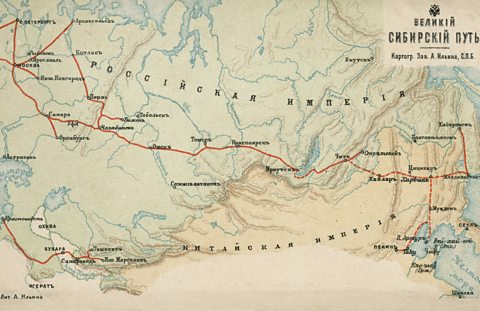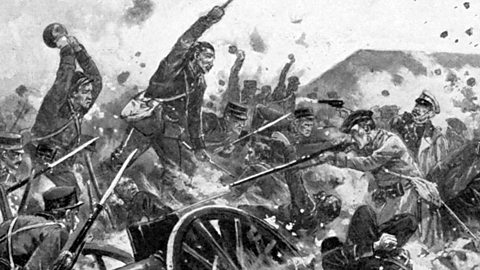Short term cause -Defeat in the war with Japan
Between 1904 and 1905, Russia and Japan faught for control of strategic territories in China. It ended with humiliating defeat for Russia. This brought critical attention to the Tsar's regime.
Causes of the war
Tsar Nicholas II was advised by Plehve, the Minister of the Interior, that a national victory would lessen the growing opposition to Tsarist rule. It was an opportunity to heighten patriotic fervour and national pride.
Japan was also a threat to Russian interests in Asia. Russia benefited from economic expansion into the Far East and increased access to the Pacific coastline. Japan had become concerned that Russian expansion of the Trans-Siberian Railway into Chinese Manchuria could threaten Korea.
China was weak and Japan had an interest in acquiring land for herself. Japanese negotiations to avoid war were ignored by Tsarist officials and hence the war began.

The course of the war

In January 1904, the Japanese besieged Port Arthur, a Russian naval base and attacked the Russian Pacific Fleet.
Russian forces were left without supplies as the Trans-Siberian Railway was unfinished and there was no effective way of moving troops from the west.
Russian armies suffered heavy losses on the Yalu River and at Mukden as a result of the vastly superior Japanese forces.
The Russian Baltic fleet was sent to the Pacific in March 1905. However, after arriving there in May 1905, it encountered the Japanese navy. Over two days of battle, two thirds of the Russian fleet was destroyed and other ships were captured. Only a small number of Russian ships escaped.
Impact of the War
The embarrassment of defeat to an Asiatic power added to the view that Tsarist government was incompetent.
The Tsar had to agree to a humiliating peace treaty with the Japanese after the destruction of the Baltic Fleet. Defeat in the war led to a mutiny on board the Potemkin battleship in June 1905.
Resources diverted to the war lessened the already limited supply of grain and fuel.
In 1904 Plehve was assassinated in a terrorist bomb attack.